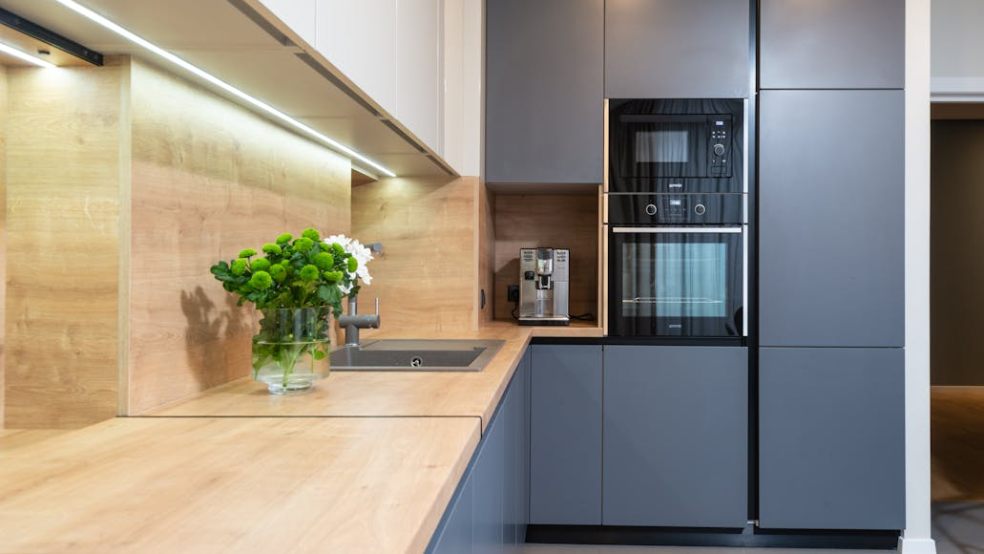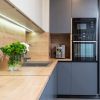
What Appliances Can Solar Panels Power?
As the UK moves closer to its net-zero targets, more households are turning to renewable energy sources, particularly solar panels. With energy costs still high and concerns about sustainability growing, solar power offers a practical solution for reducing both bills and carbon emissions.
But one of the most common questions homeowners ask is: “What appliances can solar panels actually power?” Understanding this helps you plan your system effectively and see the real-life impact of switching to solar.
In this guide, we’ll break down the types of appliances solar panels can power, how much electricity you’ll need, and whether solar energy can realistically support your household.
How Much Power Do Solar Panels Generate?
Before diving into appliances, it’s important to understand the output of a solar panel system.
-
A typical UK solar panel system is 4kW in size.
-
On average, this system produces 3,400 – 4,200 kWh per year.
- The average UK household uses about 2,900 kWh of electricity annually.
This means that, in many cases, a well-sized solar system can cover most, if not all of your household’s electricity usage.
Appliances That Solar Panels Can Power
1. Kitchen Appliances
The kitchen is usually the biggest consumer of electricity in any home. Luckily, solar panels can handle many of these appliances.
-
Refrigerator/Freezer – A fridge typically consumes around 100–200 kWh per year. A solar panel system can easily keep it running.
-
Microwave – Short bursts of high power (600–1200W), but not an issue if managed properly.
-
Dishwasher – Consumes about 1.5 kWh per cycle; solar can cover this, especially when timed during daylight.
- Electric Oven & Hob – These use more power (2–3 kW). If you have an induction hob or electric oven, you may need to plan carefully to avoid overloading your system.
2. Lighting & Small Appliances
Solar is perfect for low-energy items like LED lights, laptops, Wi-Fi routers, and phone chargers. These use minimal electricity and can be run all day without issue.
-
LED Bulb – Uses around 10W, so even with 20 bulbs, that’s just 200W total.
-
Laptop – About 50–100W per hour.
-
Wi-Fi Router – A constant 6–10W, barely noticeable.
3. Entertainment Systems
-
Television – A modern LED TV uses around 60–150W.
-
Gaming Consoles – About 100–200W, similar to a computer.
- Speakers & Sound Systems – Around 50–200W, depending on size.
Solar panels can comfortably support these when used moderately.
4. Laundry Appliances
This is where solar systems face their biggest challenge.
-
Washing Machine – Around 0.5–1.5 kWh per cycle.
-
Tumble Dryer – Can use 2.5–4 kWh per cycle (very energy-intensive).
- Iron – Around 1–1.5 kW while in use.
Tip: If possible, run these appliances during the day when your solar panels are generating the most electricity.
5. Heating & Hot Water Appliances
This depends on your home setup.
-
Electric Kettle – Uses around 2–3 kW, but only for a few minutes at a time.
-
Immersion Heater – Can use 3 kW continuously, making it a heavy load.
- Space Heaters – A small electric heater may use 1–2 kW.
If you use electric heating, you may need a larger solar array or pair it with battery storage to cover evening demand.
6. Large Household Appliances
Solar panels can power these, but they tend to be big energy consumers:
-
Vacuum Cleaner – Around 500–800W.
-
Electric Shower – One of the biggest drains, using 7–10 kW.
- Air Conditioning (rare in UK homes, but increasing) – Uses 1–3 kW depending on size.
Running these appliances solely on solar may not always be possible unless your system is larger or supported by battery storage.
Can Solar Panels Power an Entire Home?
Yes, depending on your usage and the size of your system. Many UK homes with a 4–6kW system can cover the majority of their electricity needs.
However, solar panels only generate electricity during daylight hours. If you want to run appliances at night, you’ll need:
-
Battery Storage – Stores excess daytime energy for later use.
- Grid Connection – Most homes stay connected to the grid for backup.
With the right setup, solar panels can power almost everything in your home, significantly cutting your reliance on the grid.
Tips to Maximise Solar Power for Appliances
-
Use Appliances During the Day – Run washing machines, dishwashers, and ovens when solar output is highest.
-
Invest in Energy-Efficient Appliances – Modern A-rated appliances consume less electricity, making solar more effective.
-
Consider a Solar Battery – This allows you to power evening appliances without relying on grid electricity.
- Monitor Your Energy Usage – Smart meters and solar monitoring apps can help you understand when and how to best use your power.
Final Thoughts
Solar panels can power most household appliances, from fridges and TVs to washing machines and lighting. While very high-demand appliances like electric showers or tumble dryers can push the limits of smaller systems, strategic usage and battery storage can make solar a reliable solution for the majority of your needs.
If you’re wondering whether solar is a good investment for your home, it’s worth exploring not just what they can power, but also whether they’ll pay off in the long run. For a detailed breakdown of costs, savings, and return on investment, check out this full guide on are solar panels worth it in the UK?

















